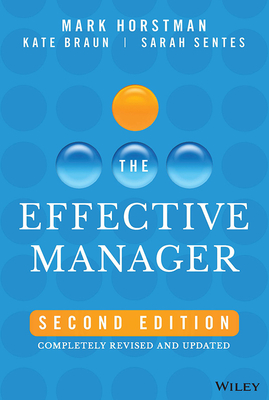More on this book
Community
Kindle Notes & Highlights
Read between
December 5, 2023 - August 5, 2025
feedback must be done at the time of the behavior, not at the end of the year.
Our data show you get roughly 80% of the value from a phone O3 that you do from a face‐to‐face O3.
The reason for the decline isn't the O3; it's the distance.
Do MTO3s face to face whenever possible.
Do Zoom MTO3s when you can't be face to face but can do a Zoom call.
You get about 90% of the value of a face‐to‐face MTO3 with Zoom.
Do phone O3s when you can't do Zoom or...
This highlight has been truncated due to consecutive passage length restrictions.
let's remember our purpose. Webcams and phones are tools, but the purpose is relationships.
Primary focus on the team member Regularly scheduled Never missed 30 minutes—10/10/10 Take notes
when you change how you manage, the fear, uncertainty, and doubt (FUD) about the change are always part of the response. Don't assume it's just you—it happens to all of us.
the Middleman Test. Never tolerate from your directs that which you would not visit upon your boss. And never do to your boss that which you would not accept from your directs.
From the company's perspective (which is the perspective the manager must take), a direct wishing for virtually no managerial oversight at all is a liability risk.
The problem today with the average manager–direct relationship is NOT one of too much management, but far too little.
Micromanagement is the systemic and routine application of an intrusive relationship such that the manager assigns tasks, explains what to do, how to do it, and insists on total process compliance, and then observes the work in real time, corrects the work as it is being done, and in the event of divergence from standards, takes OVER the work and completes it himself.
Sometimes, using your role power (“Hey, guys, we gotta do this because we gotta do it”) is a legitimate motivational speech.
Remember, though, that when you DO use role power, it is always more effective when resting on a strong relationship foundation.
when your directs tell you they're too busy, they're talking about how busy they are right now.
if we allow every new idea to be compared to everyone's current schedule, no one could ever introduce new ideas to change/improve performance or behavior or quality or quantity or efficiency.
If we're all too busy for any changes, how will anyt...
This highlight has been truncated due to consecutive passage length restrictions.
when your direct objects on the basis of being too busy, tell them that you know and respect that, and that's why you're scheduling them now for 3–5 weeks from now … when you know they have nothing already scheduled.
if we're all so busy we don't have time for anything more, we better get our priorities right.
being so busy that one can't change has dangerous implications.
the busiest and most successful organizations change all the time.
at its core, “busy” means, “I have more work to do than I have time to do it.”
before trying to get more of everything done, get the most important things done first.
it's better to try to first achieve results through effectiveness
before trying to achieve results thro...
This highlight has been truncated due to consecutive passage length restrictions.
Work on the right things first. Then get more efficient at those right things, and you'll have more time for either more right things, or some less important things.
so few people think globally or strategically about their time and calendar/schedule.
just because we know that Relationship Power is the ultimate lever, that doesn't mean Role Power doesn't exist. If we use it rarely, when we do, it will be respected.
Role Power tends to exist in inverse proportion to how often you have to use it.
5 Doing One on Ones with Remote and Hybrid Workers


